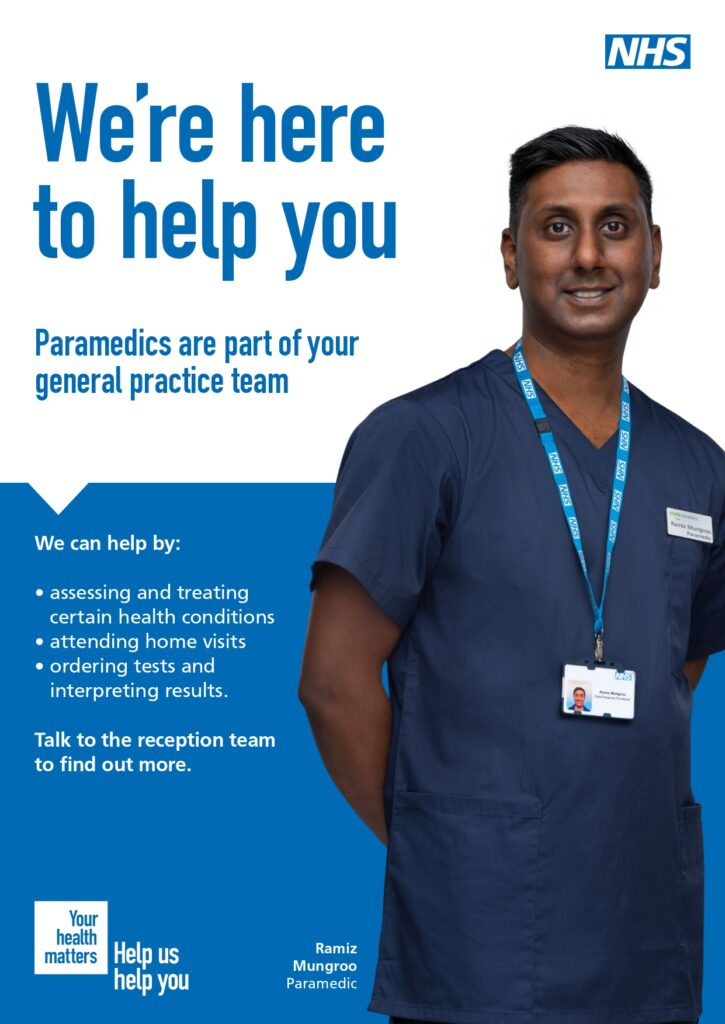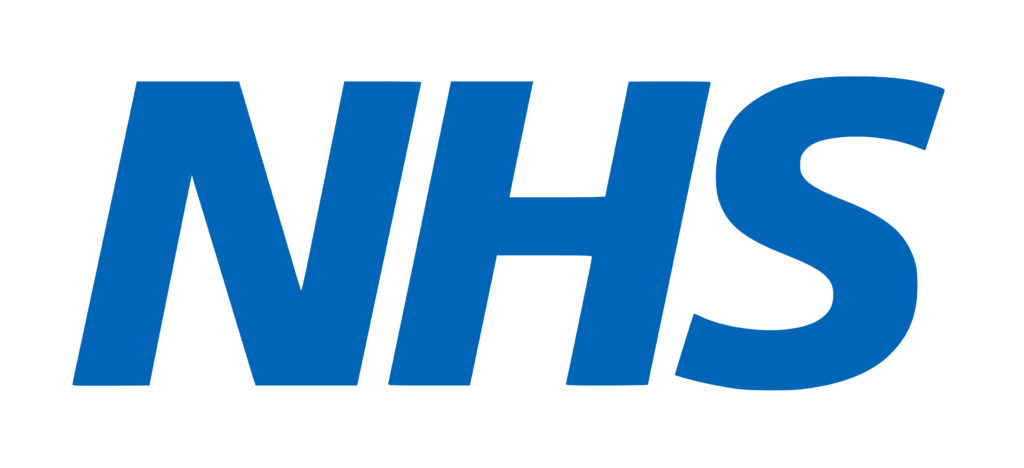Newham Central PCN Patient Participation Group
A Patient Participation Group (PPG) aims to bring together patients, practice staff, and GPs, to work on improving services and provide high quality care. Currently only the PPG chair for each of our member practices are invited to the meeting.
Our PCN PPG meetings are held every quarter on the following dates:
- Thursday, 24th July 2025 at 16:00 – 17:00
- Thursday, 23rd October 2025 at 16:00 – 17:00
Participants can join either in-person at Essex Lodge Surgery or online via Microsoft Teams. If you are interested in joining the meeting, please contact your practice manager, or reach out to us using the ‘Contract Us’ form on this website.
You can view our previous meeting minutes by clicking on the link below:
Staff at your GP Practice
Our PCN has recruited a number of multidisciplinary roles under the Additional Roles Reimbursement Scheme (ARRS) to meet the needs of our local population. These staff members deliver a range of health services and are integrated into the wider practice team.
Find out which ARRS roles work at your practice by going to the ‘About Us’ page on this website.
Clinical pharmacists work in primary care in a patient facing role to clinically assess and treat patients using their expert knowledge of medicines. If they have completed an independent prescribing qualification, they can also issue prescriptions without having to refer patients back to the GP.
Clinical Pharmacist responsibilities include:
- Conducts structured medication reviews (SMRs)
- Independent prescribing/deprescribing
- Provides medication advice to healthcare professionals and patients
- Optimises medication (e.g. antibiotic stewardship)
- Translates medicines national policies into local implementation
- Adopts a whole system approach to medicines management
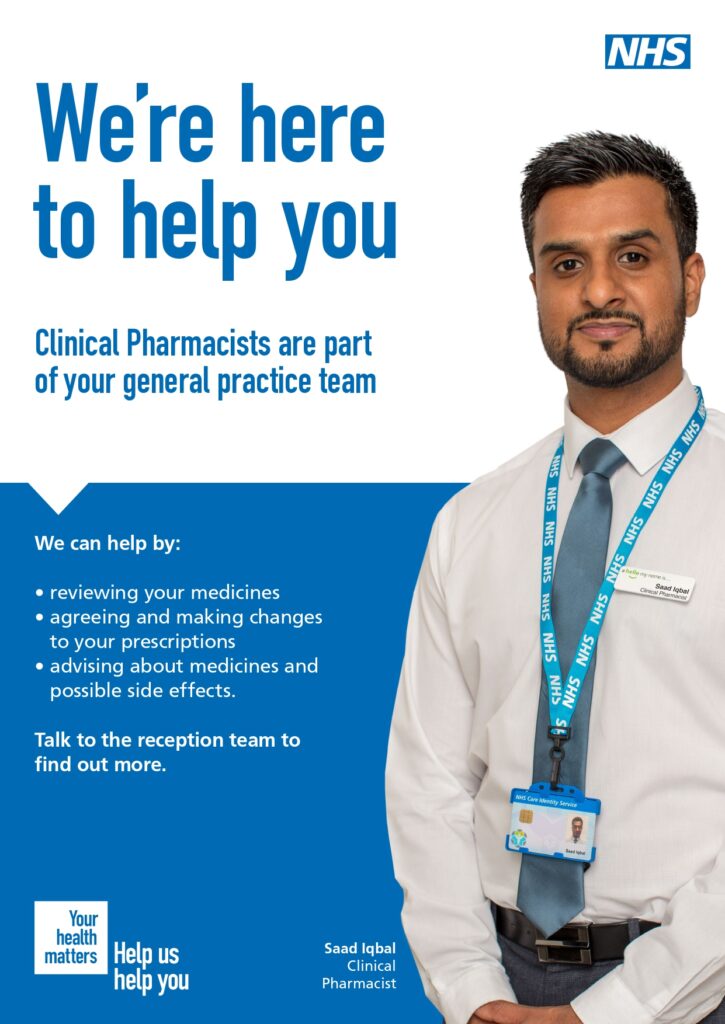
Physician associates are healthcare professionals, with a generalist clinical education, who work alongside GPs to provide care as part of the multidisciplinary team. They provide care for the presenting patient from initial history taking and clinical assessment through to diagnosis, treatment, and evaluation.
Responsibilities include:
- Managing undifferentiated, undiagnosed cases by history taking, physical examinations and clinical decision-making to establish a working diagnosis and management plan
- While they currently do not have prescribing rights, they can prepare prescriptions for GPs to sign

Social Prescribing Link Workers
Social prescribing link workers connect people to community-based support, including activities and services that meet practical, social, and emotional needs that affect their health and wellbeing. This includes connecting people to statutory services for example housing, financial and welfare advice.
Care Coordinators
Care co-ordinators help to co-ordinate and navigate care across the health and care system, helping people make the right connections, with the right teams at the right time. They can support people to become more active in their own health and care and are skilled in assessing people’s changing needs.
They can be an effective intervention in supporting people to stay well particularly those with long term conditions, multiple long-term conditions, and people living with or at risk of frailty.
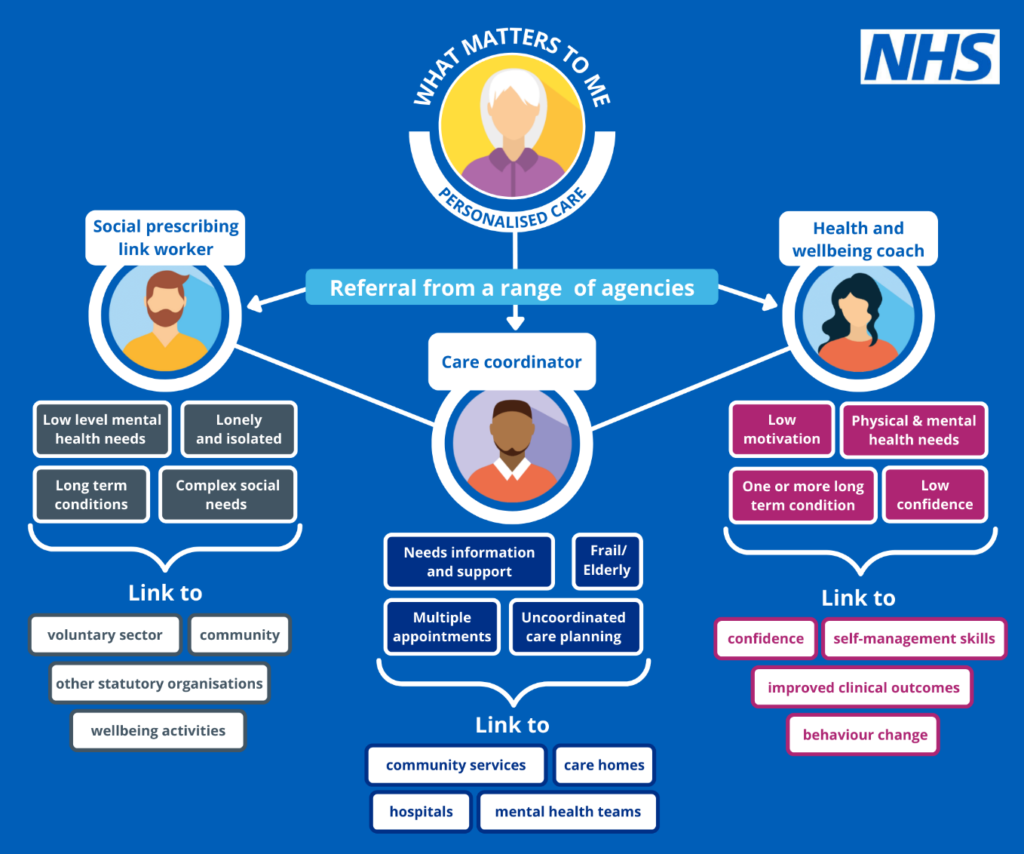
Pharmacy technicians complement the work of clinical pharmacists, through utilisation of their technical skillset. Their deployment within primary care settings allows the application of their acquired pharmaceutical knowledge in tasks such as medicines reconciliation, audits, prescription management support, and where appropriate, advising patients and other members of the PCN workforce.

First contact practitioner physiotherapists are qualified autonomous clinical practitioners who can assess, diagnose, treat, and manage musculoskeletal problems and undifferentiated conditions. Where appropriate, they are also able to discharge a person without a medical referral.
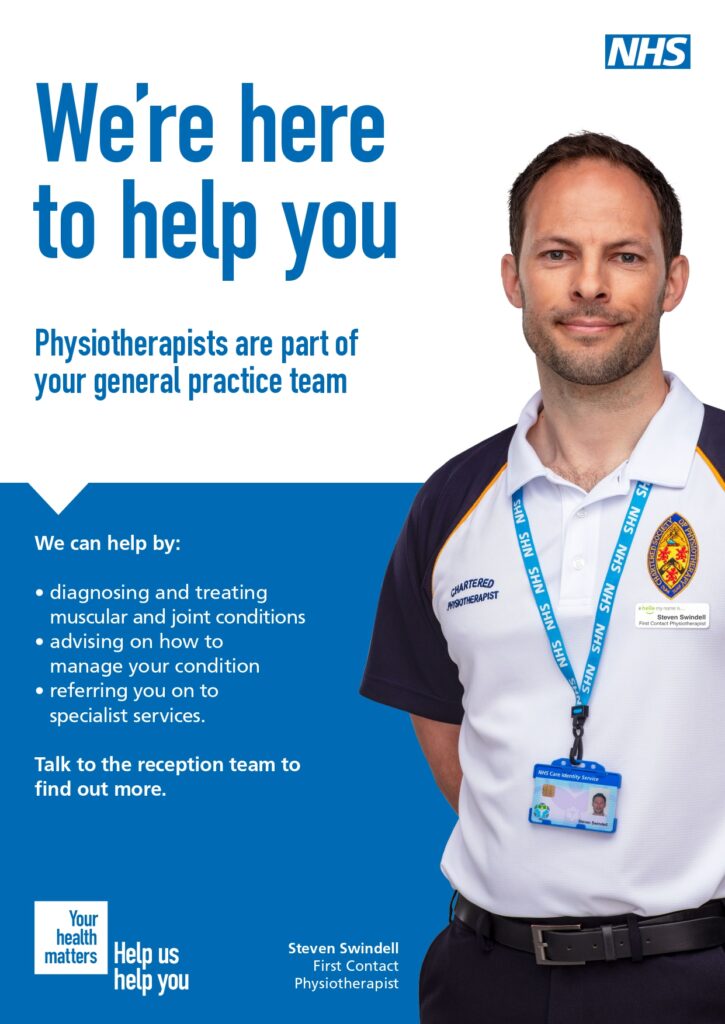
Mental health practitioners support adults whose needs cannot be met by local talking therapies, but who may not need ongoing care from secondary mental health services.
In Newham Central PCN, we have recruited a mental health nurse practitioner. This role acts as bridge between primary care and secondary mental health services and can facilitate onward referral to a range of services to meet patients’ needs.
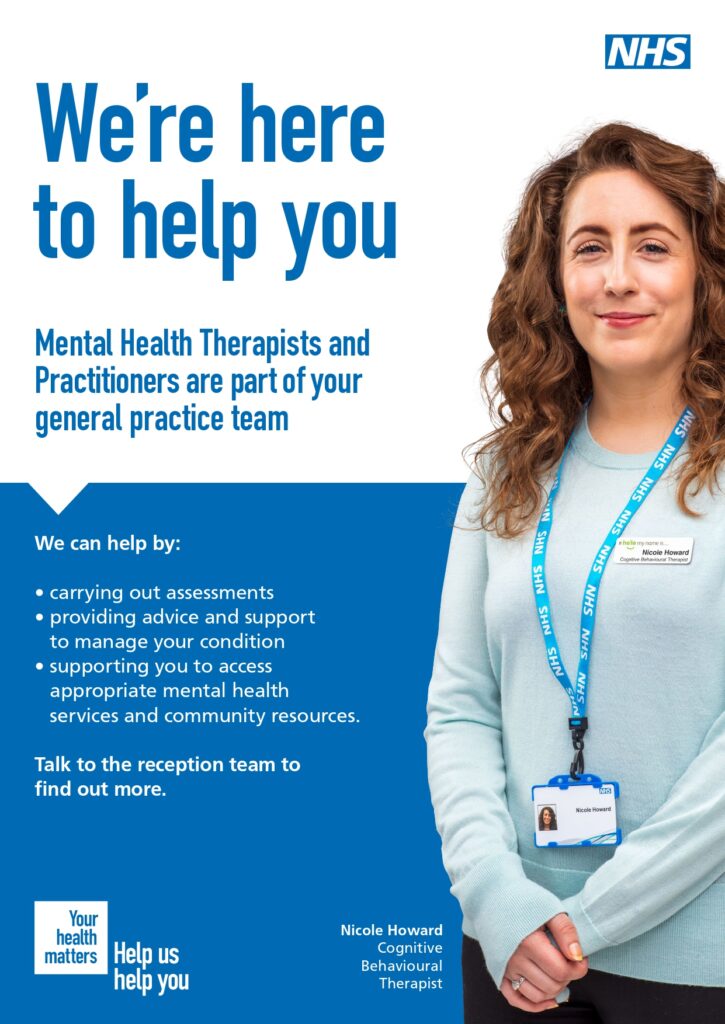
General practice assistants deliver a combination of routine administrative tasks and some basic clinical duties in the general practice setting. Their focus is on supporting GPs in their day-to-day management of patients, specifically aimed at reducing the administrative burden and making best use of consultations.
A paramedic in primary care can provide a rapid response to deteriorating patients and patients with long-term conditions, minor injuries, and minor illness. They can also support patients who require wound care, have fallen, have musculoskeletal problems, and have urinary tract or respiratory infections. Paramedics can supply a range of medicines through patient group directions, including antibiotics and analgesics.
